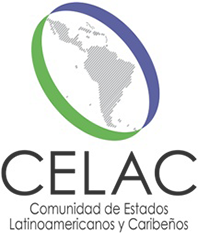PRENSA
CELAC Marks Third Anniversary of Progressing Regional Unity
Caracas, December 3, 2014 (Telesur).- The Community of Latin American and Caribbean States (CELAC), initiated by the former Venezuelan President Hugo Chavez, marked its third anniversary on December 2.
The group, which unites 33 countries of Latin America and the Caribbean, launched in Venezuela in 2011, when representatives of each country signed the Declaration of Caracas. The declaration seeks to consolidate integration within the Americas, and to reduce the overwhelming influence of the US in the region.
At the inaugural summit of the CELAC, President Hugo Chavez stated, “We are just one big country, or we are not; either we unite in a great homeland or there won’t be a homeland for anyone in these lands!”.
Chavez’ push to integrate the group has parallels with attempts by Simon Bolivar, the liberator of many Latin American nations, to unify the peoples of the Americas. Back in 1819, Bolivar wrote, “The day we achieve the unity, if the sky grants us that vote, then we will build in this new world, the Mother of all Republics, and the Queen of the Nations”.
Unlike the Organization of American States, which has excluded Cuba for decades, CELAC includes all the countries in South and Central Americas well as the Caribbean. It does not involve the United States or Canada.
The regional bloc has already had two summits, the first one was held in Santiago, Chile on January 2013, and the second one in Havana, Cuba on January 2014.
It is now preparing for a third summit in Costa Rica, scheduled for January 28 and 29, 2015.
Also, Luis Guillermo Solis, President Pro Tempore of the bloc has announced a forum between the CELAC and China in January in Beijing.
The members of the bloc, who signed the Declaration of Caracas are: Antigua and Barbuda, Argentina, Bahamas, Barbados, Belize, Bolivia, Brazil, Chile, Colombia, Costa Rica, Cuba, Dominica, Dominican Republic, Ecuador, El Salvador, Granada, Guatemala, Guyana, Haiti, Honduras, Jamaica, Mexico, Nicaragua, Panama, Paraguay, Peru, St. Kitts and Nevis, Santa Lucia, St. Vincent and the Grenadines, Suriname, Trinidad and Tobago, Uruguay and Venezuela.
CELAC Marks Third Anniversary of Progressing Regional Unity
Caracas, December 3, 2014 (Telesur).- The Community of Latin American and Caribbean States (CELAC), initiated by the former Venezuelan President Hugo Chavez, marked its third anniversary on December 2.
The group, which unites 33 countries of Latin America and the Caribbean, launched in Venezuela in 2011, when representatives of each country signed the Declaration of Caracas. The declaration seeks to consolidate integration within the Americas, and to reduce the overwhelming influence of the US in the region.
At the inaugural summit of the CELAC, President Hugo Chavez stated, “We are just one big country, or we are not; either we unite in a great homeland or there won’t be a homeland for anyone in these lands!”.
Chavez’ push to integrate the group has parallels with attempts by Simon Bolivar, the liberator of many Latin American nations, to unify the peoples of the Americas. Back in 1819, Bolivar wrote, “The day we achieve the unity, if the sky grants us that vote, then we will build in this new world, the Mother of all Republics, and the Queen of the Nations”.
Unlike the Organization of American States, which has excluded Cuba for decades, CELAC includes all the countries in South and Central Americas well as the Caribbean. It does not involve the United States or Canada.
The regional bloc has already had two summits, the first one was held in Santiago, Chile on January 2013, and the second one in Havana, Cuba on January 2014.
It is now preparing for a third summit in Costa Rica, scheduled for January 28 and 29, 2015.
Also, Luis Guillermo Solis, President Pro Tempore of the bloc has announced a forum between the CELAC and China in January in Beijing.
The members of the bloc, who signed the Declaration of Caracas are: Antigua and Barbuda, Argentina, Bahamas, Barbados, Belize, Bolivia, Brazil, Chile, Colombia, Costa Rica, Cuba, Dominica, Dominican Republic, Ecuador, El Salvador, Granada, Guatemala, Guyana, Haiti, Honduras, Jamaica, Mexico, Nicaragua, Panama, Paraguay, Peru, St. Kitts and Nevis, Santa Lucia, St. Vincent and the Grenadines, Suriname, Trinidad and Tobago, Uruguay and Venezuela.
